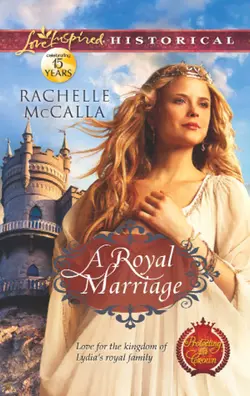A Royal Marriage

Rachelle McCalla
Тип: электронная книга
Жанр: Современная зарубежная литература
Язык: на английском языке
Стоимость: 458.46 ₽
Статус: В продаже
Издательство: HarperCollins
Дата публикации: 16.04.2024
Отзывы: Пока нет Добавить отзыв
О книге: Wedding Awaits Despite her protests, Princess Gisela, headstrong daughter of the Holy Roman Emperor Charlemagne, must enter into a diplomatic marriage. Yet en route to her wedding, her ship is attacked and she’s gravely injured. Rescued by a renowned healer, King John of Lydia, Gisela recuperates at his Mediterranean castle.The handsome, widowed ruler soon has her reevaluating her beliefs on love and marriage…but only if King John could be her groom. Their love is forbidden, and duty requires him to deliver her to her betrothed. Unless they can find a way to join their hearts—and kingdoms—with love, faith and honor. Protecting the Crown: The royal family fights for love and country